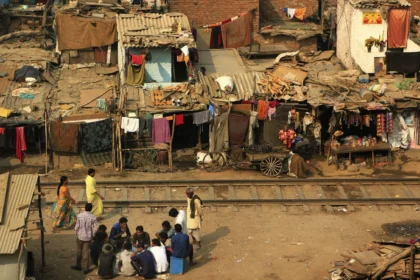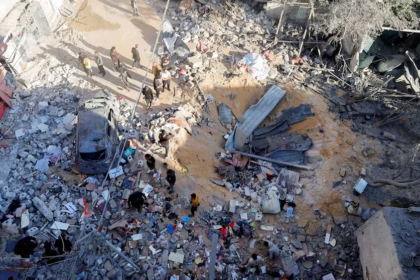Singaporean Woman Who Survived Pahalgam Terror Attack Sends Emotional Message to PM Narendra Modi
Singaporean Survivor of Pahalgam Terror Attack Praises PM Modi’s ‘Operation Sindoor’
Singapore – A Singaporean national of Indian origin who narrowly escaped the brutal April 22 terror attack in Jammu and Kashmir’s Pahalgam has shared an emotional message of gratitude for Prime Minister Narendra Modi and the swift government response under ‘Operation Sindoor’. The initiative, named after the traditional symbol of marital sanctity, has provided solace and a sense of justice to victims and survivors alike.
Vaishali Bhatt and her husband were among the many tourists enjoying the scenic beauty of Baisaran Valley, famously dubbed the “Mini Switzerland” of India. Just 90 minutes after they departed the area, terrorists struck, executing a cold-blooded attack on civilians. The coordinated ambush left 26 people dead, mostly male tourists, in what has been described as one of the most heinous terror incidents in recent memory.
A Narrow Escape and Rising Frustration
Reflecting on her experience, Vaishali Bhatt recounted how close she and her husband had come to becoming victims themselves. “We had just left the area when the attack occurred. It was surreal. We were lucky to be alive,” she said in a video message.
Initially, Bhatt admitted she was disheartened by what appeared to be a delayed government response. “Each day, I would read the news, waiting for a concrete step against the perpetrators. That waiting was painful. It felt like nothing was happening.”
Her frustrations, however, turned into overwhelming emotion and gratitude on May 7, when she read about Operation Sindoor — a targeted counter-terror mission reportedly launched under direct orders from Prime Minister Modi. The name and the symbolism behind it brought her to tears.
‘Sindoor’ – A Symbol of Protection and Pain
What struck Bhatt most was the naming of the operation. ‘Sindoor,’ the vermilion worn by married Hindu women, is not just a cosmetic adornment but a profound cultural and spiritual emblem signifying marital commitment and a husband’s protection. In the context of the Pahalgam attack, where the male victims were specifically targeted, the terrorists’ actions symbolically attempted to erase that very bond — creating instant widows and tearing apart families.
“I cried when I read about Operation Sindoor. That name, that symbolism… it wasn’t just a military operation; it was an emotional answer to our collective pain,” Bhatt shared.
Sources close to the matter indicate that Prime Minister Modi himself suggested the name of the operation, reinforcing the emotional and cultural depth of the mission. His involvement, according to many observers, underscores his commitment to not just eliminating terror threats but also restoring the dignity of those who suffer in their wake.
Voices from the Ground and Across Borders
Vaishali Bhatt’s video message, shared during a conversation with BJP MP Hemang Joshi in Singapore, has gone viral. Joshi, who is part of a delegation visiting Singapore to amplify India’s stance against terrorism, said Bhatt’s story reflects the unbreakable spirit of victims and survivors.
“She is not just a survivor; she is a voice for many who have lost loved ones. Her message is a reminder of why we must never relent in our fight against terrorism,” Joshi stated.
Bhatt’s message to Prime Minister Modi was simple yet powerful: “Thank you for listening. Thank you for acting. And thank you for giving this operation a name that speaks to every Indian woman’s soul.”
Wider Impact of the Attack
The April 22 attack shocked the nation. The targeted nature of the assault — with terrorists reportedly sparing women and children while executing male victims — caused widespread outrage. Security experts noted that this tactic was designed to maximize psychological trauma and long-term social disruption in the affected families.
In response, Operation Sindoor was launched as part of a larger counter-terror campaign aimed at dismantling the network behind the attack. While details of the operation remain classified, officials confirmed that multiple key suspects have been neutralized or apprehended, and several hideouts dismantled.
India’s Evolving Anti-Terror Strategy
Operation Sindoor is one of several recent operations that reflect a shift in India’s anti-terror strategy. Under the Modi administration, India has increasingly adopted proactive, high-impact responses to terror threats — not just focusing on neutralizing immediate risks, but also addressing symbolic and emotional dimensions of national security.
By naming the operation after a cultural motif, the government has managed to connect with the public in a deeply resonant way — a tactic rarely seen in traditional counter-terror campaigns.
Conclusion: A Message of Strength and Solidarity
As the victims’ families continue to recover from their unimaginable loss, survivors like Vaishali Bhatt are lending strength and perspective to the national conversation on terrorism and justice. Her emotional testimony and praise for Operation Sindoor have ignited discussions not just in India, but globally, about the human side of counter-terrorism.
Through her message, Bhatt has shown that survival is not just about physical escape — it’s also about emotional healing, solidarity, and the hope that justice will prevail. Her story stands as a testament to the resilience of the human spirit and the importance of meaningful government action in times of crisis.
Also Read : Madhya Pradesh Job Aspirants Face Errors and High Fees, Feel Cheated by Recruitment Process








